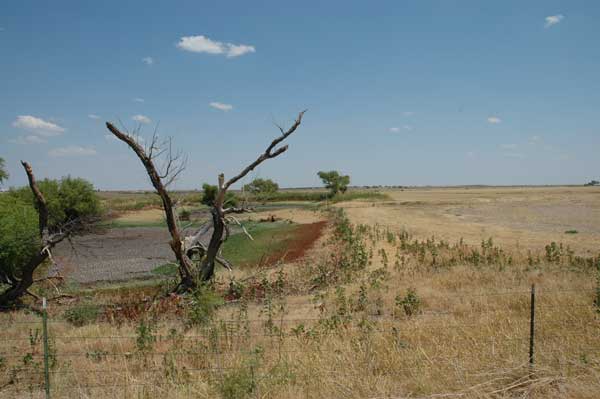
The more than $5 billion loss to Texas farm revenues caused by the worst drought in Texas history is having a tremendous impact on the state’s agriculture industry.Staples said the drought will focus attention on Texas water issues.Staples also expressed frustrations with U.S. border control policy.

Drought, border security issues and the unprecedented economic damage facing Texas farmers and ranchers gave Commissioner of Agriculture Todd Staples plenty of talking points as keynote speaker at the Texas Produce Association Convention Thursday in South Padre Island.
Staples said the more than $5 billion loss to Texas farm revenues caused by the worst drought in Texas history is having a tremendous impact on the state’s agriculture industry and “supersedes the $4 billion loss in 2006.”
He broke the losses down as follows: livestock, $2 billion; cotton, $1.8 billion; hay, $750 million; corn, $327 million; wheat, $243; and sorghum, $63 million.
“If it doesn’t rain soon, the losses will be even worse,” Staples said. “And that $5 billion loss doesn’t count fruit and vegetables and other specialty crops.” Fall planted crops also are in jeopardy if no rain comes in time to germinate seed.
He said 93 percent of the state is in either extreme or exceptional drought status. That condition could persist for some time yet.
“The forecast indicates continuation of drought through September and into October and with a 50/50 chance of extending into 2012,” he said. “The drought has affected the livelihood of those involved in Texas agriculture.”
Staples said the drought will focus attention on Texas water issues. Discussions about the future of water use in the state will “have everything on the table,” he said. The last legislature reaffirmed Right of Capture as the overriding tenet of Texas water law. “No one has come up with anything better,” Staples said.
He said future water planning must consider moving water in from Oklahoma and Louisiana. “We have to get serious about water strategy and planning,” he said.
Staples said the Texas economy, “has emerged from the recession,” with positive signs from sales tax revenue increases, improved employment figures and low mortgage foreclosures.
He also emphasized the importance of agriculture to the Texas economy and discussed the challenge the Texas Department of Agriculture faces with a 40-percent budget cut.
“We are re-engineering and redesigning the way we do things,” he said. “Reducing cost is first and foremost. We’re also looking to see if private industry provides the same services we have and, if not, see if they can. We will continue to maintain our strong ability to protect consumers and maintain a positive business climate. We will try to make decisions that affect Texas as minimally as possible.”
He said assuring consumers of a plentiful supply of safe food remains a priority.
Staples also expressed frustrations with U.S. border control policy. He said his office has received reports of farmers being chased off their own property by illegals crossing over from Mexico.
“We have a serious problem with drug cartel violence along the border,” he said. “State and federal law enforcement agents have been fired on from the river (Rio Grande). Our border patrol, local and state law enforcement agents are doing a good job, but they need help. They need more resources.”
Staples said he has supported the cross border trucking agreement and that he realizes Mexico is a valuable trading partner. He also said some areas in agriculture have serious labor shortages and need immigrant workers.
“The federal government has been unable to address the problem of illegal immigration and make possible a legal means for an adequate work force. We need some common sense solutions. Many come here looking for work, not citizenship. Our immigration law is a failed system.”
He said a workable solution would address the border violence while paving the way for legal immigration to provide needed workers.
“Currently, at night our border patrol agents can’t tell if someone crossing the border is labor or a member of the drug cartel.”
Finally, Staples said agriculture in Texas will become more and more important as the population continues to expand, possibly to 40 million within the next 40 years. That population will put more stress on production of food and fiber and on limited water resources.
He said ag will need to develop partnerships and find better ways to communicate with and educate consumers.
About the Author(s)
You May Also Like





